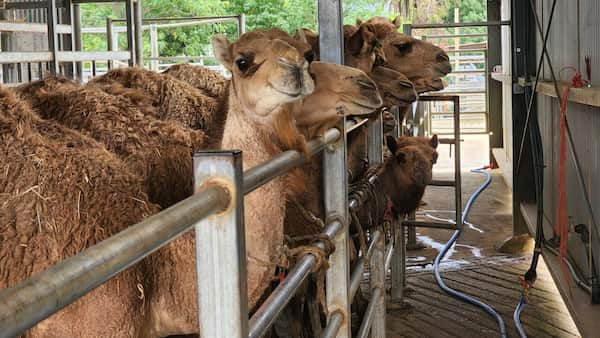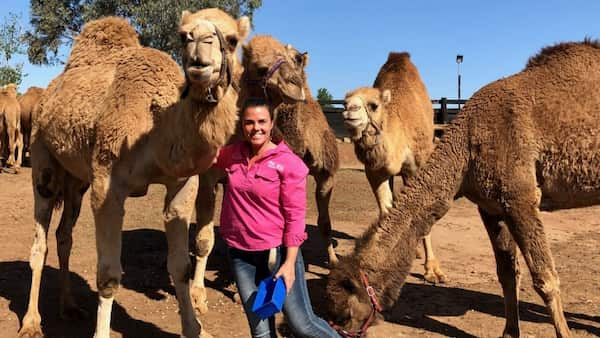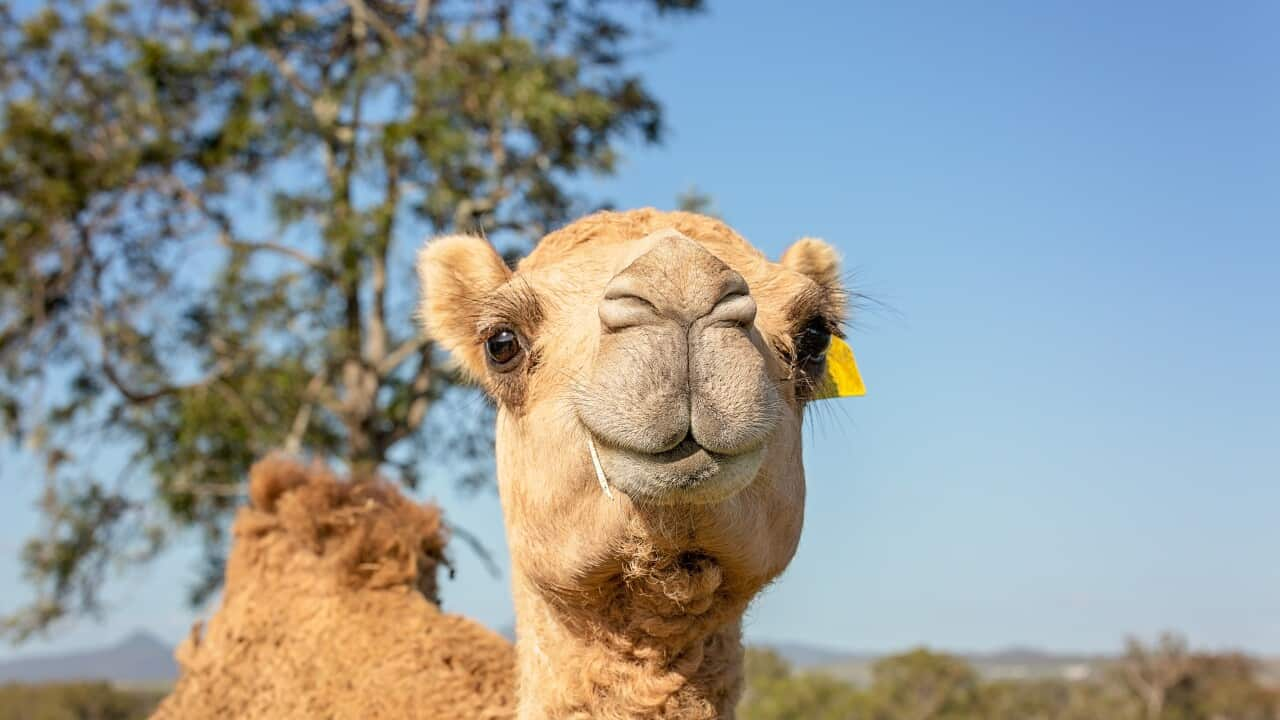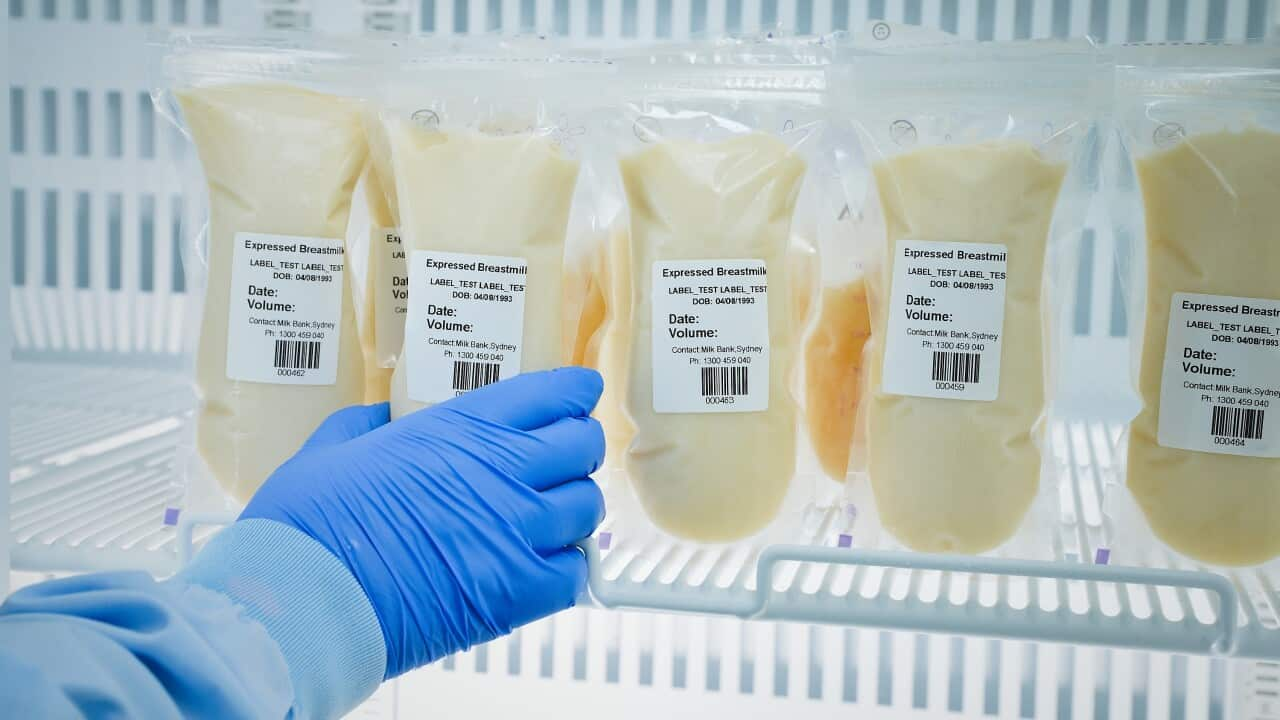As consumers steadily ditch cow's milk, alternative milk has risen in popularity.
Between 2020-21, the average Australian consumed 17 grams per day of dairy milk substitutes like soy milk or almond milk, according to the Australian Bureau of Statistics.
Almond milk consumption increased by 31 per cent compared to the previous two-year period, while soy milk experienced a 16 per cent rise over the same period.
Safe to say, plant-based milks are having their moment in the sun (and our cups).
But other forms of dairy are beginning to emerge onto the milk scene, including milk from one of the most surprising animals — camels.
Produced by female camels in a manner similar to cow's milk, camel milk has been a dietary staple in Middle Eastern and African communities for thousands of years.
Now, a new study has said when it comes to alternatives to traditional dairy, it might pack the best punch.
Camel milk 'a good alternative to traditional dairy'
A report from Edith Cowan University (ECU) released last week found camel milk could be a "good alternative" to traditional dairy.
The research found camel milk contained more naturally occurring bioactive peptides when compared to cow's milk. Bioactive peptides are protein fragments that benefit the body's systems and overall health.
Manujaya Jayamanna Mohittige, a PhD student at ECU, said: "This is a good thing. We now know that camel milk has the potential to be hypoallergenic (less likely to cause an allergic reaction) compared to cow’s milk, but also that it has a higher potential to yield bioactive peptides which can have antimicrobial properties and anti-hypertensive properties."
"These bioactive peptides can selectively inhibit certain pathogens, and by doing so, create a healthy gut environment and also has the potential to decrease the risk of developing cardiovascular disease in future."
LISTEN TO

Camel milk - more than just a substitute for traditional dairy
SBS News
04:09
However, Mohittige noted that the potency of these bioactive peptides still needed further testing.
Megan Williams, a camel milk farmer in Kyabram, a town in north-central Victoria, has long believed in the benefits of drinking camel milk, which is often a substitute for people who are allergic to the cow variety.
"Nutritionally, it's naturally low in fat, it's low in lactose, and it's higher in calcium, magnesium, potassium, iron, and it even has Vitamin C in it," Williams told SBS News.
Another study from the University of Melbourne in 2022 found it could have another use as a part of treatment for those with type 2 diabetes. Researchers found camel milk contains insulin and insulin-like peptides that might work to help someone with diabetes maintain a healthy level of glucose.
Camel milk, cheese, and even ice cream
Australia could be a prime place for both production and consumption of camel milk due to our semi-arid climate and existing camel population.
"Camel milk is gaining global attention, in part because of environmental conditions. Arid or semi-arid areas can be challenging for traditional cattle farming but perfect for camels," Mohittige said.
Between 10,000 to 20,000 camels were introduced to Australia in the 1840s to help explore inland. Nowadays, there are more than a million feral camels in Australia, according to the Northern Territory government.
By 2020, there were seven certified camel milk dairy farms in Australia.
These farms don't just produce milk, they also produce meat, skincare products, cheese, and even chocolate and gelato.
Across Australia, camel milk has begun to pop up in grocery stores, including whole food stores like Harris Farm Markets and local halal grocers.
However, production volumes are still low. While dairy cows produce up to 28 litres of milk a day, camels typically produce around five litres per day.
This means the cost of camel milk can reach a whopping $18 per litre.
Around 81 per cent of global milk production is sourced from cows, with camel milk production sitting in fifth place, behind buffaloes, goats and sheep. Camel milk only accounts for around 0.4 per cent of milk production globally.
Other milk is 'just as good'
But despite burgeoning hype, Dr Evangeline Mantzioris, program director of the nutrition and food sciences degree at the University of South Australia, said other milks are "just as good".
"If you enjoy it and you like it, the taste of it and you can afford it, there's no issue with having it, but your other milks are going to be just as good," she told SBS News.
She said one caveat is to ensure that it's pasteurised: "You've got to make sure it's pasteurised because bacteria does grow in the milk."
But while Mantzioris said nothing is inherently harmful about camel milk, she can't see it taking off in Australia due to the price and, for some, the slightly salty and earthy taste.
"I think in this current cost of living crisis, people may not choose to use it unless there's a real specific benefit for them that can't be replaced by another milk product," Mantzioris said.
"In terms of all the different animal milks that are available on the market, they're all going to provide a different benefit. The most important thing from a nutritional perspective is that they've got calcium in them because that is where we get calcium in our diet."
LISTEN TO

Specialised dairy offers a lifeline to rescued camels
SBS News
04:18
While camel milk might just be launching off in Australia, it has been a staple item for thousands of years in many cultures.
"It's sustained populations for what appears to be thousands and thousands of years … for people from those cultures, absolutely they can keep drinking it and consuming it, and there are benefits to it," Mantzioris said.
"But in terms of other people who might find it culturally difficult to consume camel milk because the taste may be so different, there's nothing wrong with continuing to drink the milk that you're currently drinking, the dairy milk."




